June 14, 2025
Lalit
Kundani
Lalit Kundani is the Co-Founder of Bridge Law, LLP – a boutique law firm specializing in asset protection, trust, tax, and estate planning, corporate law, and private client matters. Previously, he was a Los Angeles County Deputy District Attorney, a trial lawyer at a national plaintiff’s firm. He is a published author, and a past consultant for DreamWorks Animation.
One Line Life Lessons from Lalit
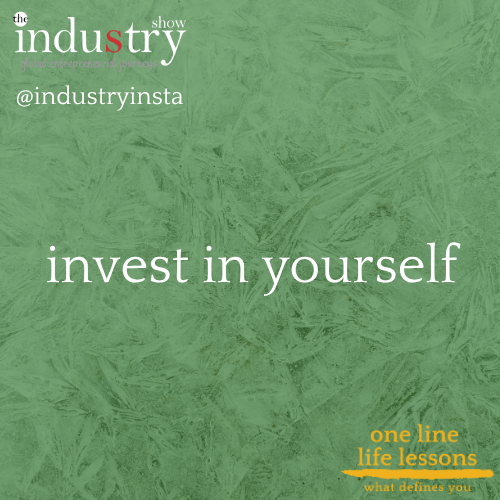
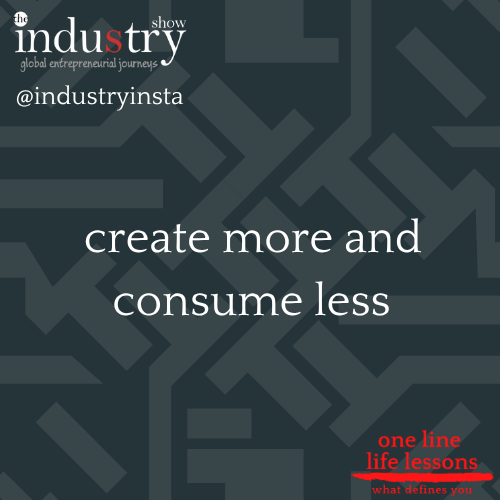
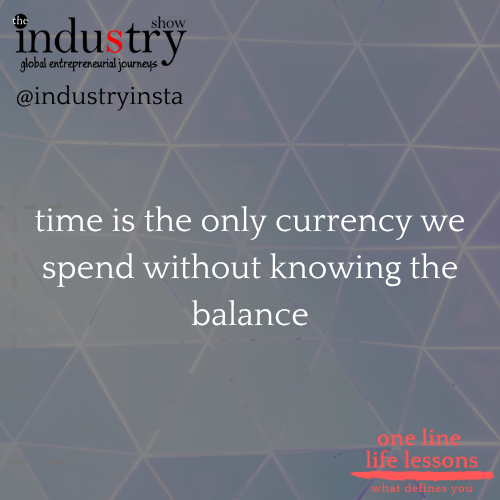
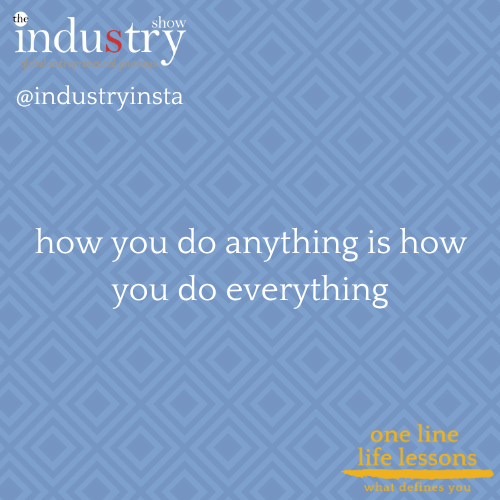
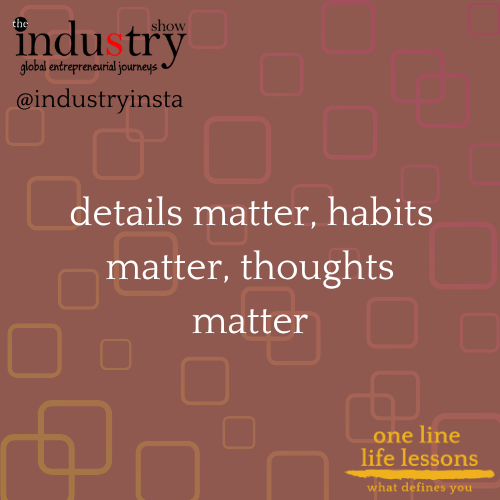
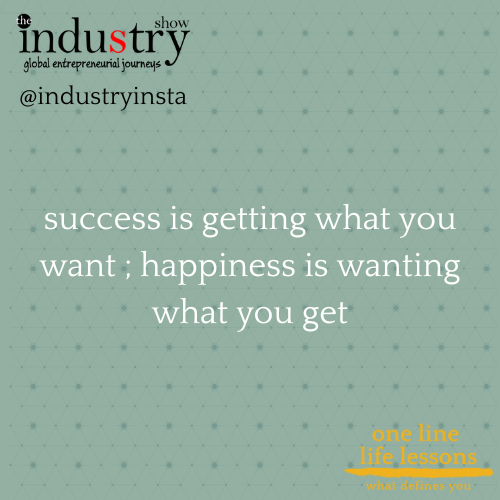
Episode Highlights
00:00-00:58: Introduction of Nitin Bajaj and Lalit Kundani. Lalit Kundani introduces himself as an attorney specializing in tax and estate planning, co-founder of Bridge Law, and a family man.
01:04-01:28: Nitin Bajaj asks about Bridge Law’s inception, journey, impact, and community service.
01:37-03:12: Lalit Kundani explains Bridge Law’s structure, focusing on estate planning and corporate matters. Their approach emphasizes client education, solution building, and guidance throughout the process.
03:15-05:18: Nitin Bajaj and Lalit Kundani discuss Bridge Law’s relationship-driven approach, contrasting it with the transactional nature of the firm’s legal work. Lalit Kundani highlights the importance of understanding clients’ individual needs and goals.
05:18-07:25: Nitin Bajaj asks about Bridge Law’s geographic reach. Lalit Kundani explains they work with clients worldwide, specializing in cross-border estate planning and handling diverse asset types.
07:29-09:44: Nitin Bajaj asks about the biggest challenge. Lalit Kundani identifies client education about estate planning as the primary challenge, due to time constraints and the prevalence of readily available but potentially misleading information.
09:49-11:41: Nitin Bajaj asks about exciting opportunities. Lalit Kundani expresses enthusiasm about the changing landscape of estate planning, with younger clients, increased cross-border work, and the inclusion of new asset classes.
11:42-15:00: Nitin Bajaj asks for moments of failure and success. Lalit Kundani recounts a career move perceived as a failure initially but ultimately successful, and successfully navigating the firm through the COVID-19 pandemic as a key success.
15:01-16:32: Nitin Bajaj inquires about Lalit Kundani’s hobbies. Lalit Kundani shares his interests in writing, music, magic, astronomy, family time, and community service.
16:35-18:03: Nitin Bajaj asks for book/podcast recommendations. Lalit Kundani recommends the book “Fearless,” emphasizing its message of perseverance and commitment.
18:04-22:26: Nitin Bajaj leads into a discussion of life lessons. Lalit Kundani shares several, including investing in oneself, creating more than consuming, respecting the limited nature of time, and the importance of attitude and intentionality in actions.
22:27-24:38: Nitin Bajaj concludes by praising Lalit Kundani’s insights. Lalit Kundani reflects on the spiritual aspects of estate planning, drawing parallels between material possessions and the larger picture of life and legacy.
24:39-25:24: Closing remarks and thanks.
Show Transcript
Transcript - Full Episode
[00:00:00 – 00:00:08] Nitin Bajaj
Hey everyone. Welcome to the industry show. I’m your host Nitin Bajaj. And joining me today is Lalit Kundani. Lalit, welcome on the show.
[00:00:08 – 00:00:10] Lalit Kundani
Thanks, Nitin. Thanks for having me.
[00:00:10 – 00:00:13] Nitin Bajaj
Great to have you here. Let’s start with who is Lalit?
[00:00:14 – 00:00:59] Lalit Kundani
Okay. It’s always a good question. I think the philosopher in me would have a different answer. But I think we’re going to speak more about the lawyer in me. So I’ll say that I am an attorney. I’ve been practicing for about 20 years here in California. I am a co founder of a law firm called Bridge Law which is in Anaheim Hills.
And I focus on tax and estate planning. When I’m not lawyering, I am being lawyered by my family. I have two girls and I have my wife and she was my old dance partner from college. So we’ve known each other for a long time. I think there’s a lot more nouns that will describe me which we can get to maybe later. But I’m a brother, I’m a son, I’m a friend, all of the above. So it’s a little bit about me.
[00:00:59 – 00:01:03] Nitin Bajaj
Love that. And looking forward to peeling off the layers as we go.
[00:01:03 – 00:01:04] Lalit Kundani
Yeah.
[00:01:04 – 00:01:36] Nitin Bajaj
The one thing I can relate to is the being lawyer dad with the two girls and the wife. So. Except I don’t get paid as a lawyer the rest of the day. So there’s that. You started talking about bridge law, the U.S. more about that. How did it get started?
Why and where are you in the journey now? What kind of impact you and your partners have been able to create and how have you served the community?
[00:01:37 – 00:03:13] Lalit Kundani
Yeah, I’ll give you the short version first. And if we want to explore it, we can. But basically there’s two parts of our law firm. I handle all of the estate planning, which includes asset protection, tax planning. My partner Simon handles all of our corporate matters. So we’re a fully transactional firm. We’re a boutique firm, which means we’re small but we do a lot of, a lot of specialties.
Which sounds weird, but there’s a lot of different nuances to what we do. And we do a wide range of those nuances. I think our mission or I kind of what I think, what I take pride in is telling folks that I think it’s a three step process working with us. Right. It’s a matter of educating clients on very complex matters. Usually it’s a matter of exploring with them what the solutions are. We call ourselves Bridge Law.
The idea is we build solutions, we build bridges. From how to get from here to there, depending on their need. And I think the third part, which is really important, which I think when we started our firm, we wanted to kind of excel at, is being a guide. So it’s not just what do you need or educating them, why you need it. It’s not just building the. The solution, the platform, the entity, whatever it is we’re building, but it’s also walking with them on that journey. And I think that’s where a lot of folks get.
They struggle with. It’s like they’re scared. What is this? Why am I doing it?
How am I doing it? Do I have the right team to do it? And that’s the advisor or the counselor role. That’s. That’s what we do. But that’s kind of also what we do a little bit differently, is that’s our approach to just about every client, no matter how big, small, in between. That’s what we focus on.
[00:03:15 – 00:03:46] Nitin Bajaj
You mentioned something that in my little brain, click to switch. You said you’re a transactional law firm. I know technically that’s an accurate term, but in the scheme of things, you’re really driving relationships. You’re there for them and helping your clients in very special, very specific ways that probably most other law firms may not be able to do. So that relationship, that specialization, almost an antithesis to how you technically use the word transactional.
[00:03:47 – 00:05:17] Lalit Kundani
Absolutely. I couldn’t agree more. The thing is, with a lot of folks, the focus is always on the end product. I need, and I love it, because people will call or they’ll say, hi, you don’t know me. I don’t know you, but this is what I need. And I always kind of laugh to myself. Yes. If you view it from the way it sounds a transaction, it can very much be in some people’s minds, at least in the beginning.
I just need a certain document. I just need a certain piece of paper. I just need some magical words.
And that’s it. It’s in and out. And yet nothing could be further from the truth. It is very much a relationship endeavor. It’s getting to know them. I call it looking under the hood to see your engine. I need to see what moves you, what makes you tick.
Where do you want to go? Why do you want to go there? Who’s on this journey with you?
Do you have children? Are you married? Are you a citizen? Can I speak to your advisors?
Because it is. Until you see the whole picture, I can’t really help folks. And I say the value of what we provide. Is that counseling? It’s the advice, it’s the. Have you thought about it this way? Have you thought about that way?
And sometimes to our detriment, if we look at it purely from a financial affair, it’s not that we’re trying to maximize our side. The more you maximize the client side, the more the value and the relationship means to them. And some clients are skeptical, but at a certain point they go, okay, now I start to get what this is about. So yeah, long way of saying the transactional is just a really bad word maybe to describe what we do.
[00:05:18 – 00:05:34] Nitin Bajaj
Hey, but you’re lawyers, you have your way with words, right? You mentioned the breadth of the solution and the type of things you work with. Is there a certain geography that you work with more than others?
[00:05:35 – 00:07:28] Lalit Kundani
Yeah, so we. So I specialize in estate planning. Now that means a lot of different subcategories. It means for some people it’s purely foundational. Like it’s if some, when something happens to me and I pass away, I want to ensure that my assets go to my children. I call that the basic foundation need that many people have. But for some people, it’s a tax driven need.
I’ve started a business, I’m selling my business for the very first time or for the 10th time. What can we do to maximize on taxes, tax efficiencies? For some clients it’s a matter of asset protection. Meaning I’m in a profession that I get sued a lot. Is there something I could do to put myself in a more secure footing? For other clients, they just had kids and they want to make sure that they’ve named guardians. So the needs always differ.
The reason why the clients come to can always vary. So geographically we have clients literally all over the world. Again, when I said earlier, we specialize in a lot of different things. One of the things we specialize in is cross border work. So for some clients, actually a lot of clients, they’re either they have. And this is a trend that you are seeing more and more, is that people have two feet in different places or proverbially they have 10ft in 10 different countries at the same time. So you might have a U.S.
citizen with assets in various countries, businesses that have different branches in different countries. And so there’s an enormous question that comes up as far as tax efficiencies go, and what should the structure look like? So geographically we service literally every continent except Antarctica.
Hopefully one day, maybe that will happen soon. But short of that, our clients are everywhere. They’re all throughout The United States, they’re all through every continent, literally. And so they, they all have different needs that we can usually service.
[00:07:29 – 00:07:53] Nitin Bajaj
This is fascinating. Now, as you go across a gamut of these verticals, horizontals, and also geographies, I’m sure there’s a lot of changing set of laws, legalities, accounting standards, et cetera. But if you had to call out the one big challenge that you’re facing, what would that be.
[00:07:55 – 00:09:47] Lalit Kundani
In terms of specifics? I think it’s going to be educating the client about going back to those three points. I said educating, building, and then guiding. It’s always on the educational side. Time is usually a big factor for most clients. They’re not going to call me years ahead because they don’t have a crystal ball. So the reality is they’re calling you already too late in terms of their journey.
Hindsight’s 20 20. If we had applied hindsight, this should have been created two years before. It’s two years later. The deal’s next week. Is there anything I can do? We get a lot of those calls. And it’s not just on the tax side, by the way.
It’s on life events. You know, my, my so and so has already passed away. Is there something I can do? This event has already happened. Is there something I can do? So the biggest challenge is educating people in both situations, if the time is not there, sometimes they risk doing something for inefficiency, but it might backfire. I have to tell them, here’s what you would do, but here’s why you probably shouldn’t do it.
From a risk standpoint, this could hurt you because there may be tax reasons that’ll backfire. And they’ve read so much. The AI is there, Google’s there. Everyone’s got a thought today. Everyone know they’re the more educated. And so that’s a problem. On one side of the time side, on the other side of the time side are the clients where I have the crystal ball, I can see where they’re going.
And I think Kennedy said this quote, which I love quotes, and I say this to clients. So he said the time to fix the roof is that when the sun is shining and we wait until it’s raining. And so when you get the client where the sun is shining, in other words, they don’t need this today. That is the time where you have to convince them to do it. So time is the biggest challenge on both sides of it.
[00:09:48 – 00:09:56] Nitin Bajaj
Makes sense. Now, on the flip side of challenges, opportunities, what’s the one you’re most excited about.
[00:09:56 – 00:11:40] Lalit Kundani
I am most excited about how fast things are moving. Estate planning. I’ll just speak for estate planning for a minute. Estate planning. Traditionally we have to think about the last movie that had to do with estate planning or a will. It’s usually some old person who’s going to die who is creating some documents. And that’s the stereotype we all have that this is something we do later.
It is so amazing, so exciting. It like rejuvenates me to see how young our clients are. We have 20 year olds who have like millions of dollars because there’s an exit on a startup that they created. The geography of it, we’re dealing with multiple people in multiple countries for the same, the same reason, which is trying to get ahead of the problem. So I’m, I get really energized by that shift in, in what’s going on. In other words, it used to be older people with tons of wealth who wait until you know, their last 11th hour to talk about these things. And it’s very geographic, it’s very local, they’re in person.
And now we live in a world where clients are halfway around the world. They’re 20 something years old, they are very well educated because of all the tools that are out there. So it makes the planning much more efficient. They come with better questions, they’re well read. So I love that part and I think the cross border is something we’re going to see a lot more of. The assets are changing so it’s not just a piece of real estate now.
It’s shares, it’s NFTs, it’s crypto. And the clientele is changing and the geography is changing. So, you know, it’s really exciting to be in that space.
[00:11:41 – 00:12:05] Nitin Bajaj
It is. Now, as we look forward, I would love to pause and reflect and ask you to share two moments in your life and career. One where things did not work out as you had expected, there was failure lessons and another where things exceeded your expectations and became a success beyond your imagination.
[00:12:06 – 00:14:59] Lalit Kundani
Yeah, we didn’t really get into the. I didn’t really get into the why, but I think my why was very unique and this has to do more with the failure side of it. I, I’ve had a very interesting career with the law in that I’ve done, I’ve touched about every space you could think of in that. I started as a litigator. I ended up now focusing on transactional law. I did criminal, I did civil. I worked for governments, government agencies, public sector and the private sector.
And now My own firm. So you rarely these days see that. And I think the reason is because I was willing to take chances, which, again, hindsight, it worked out. But at the time, there was a lot of those failure moments where, you know, you’re building up towards a goal. And I’ve always tried to look years ahead or time wise ahead. And if it didn’t sit with me as though this is going to what I see myself doing forever, I’m probably not going to do it. So one of the earliest fail moments for me was I was a young lawyer at a very large litigation defense firm, we call this Big Law.
And I had a very senior associate tell me, bring me to his office. He said, you’re making the biggest mistake of your life. If you leave us, you don’t know what you’re doing. I have your best interest at heart. He really scared me because I had already decided I was going to leave and go to be a da, which is a government job. It doesn’t pay a lot. But I knew in my heart of hearts that’s what I want to do.
I wanted to be a trial lawyer. And so I. I really thought for a very long time that I took a misstep. I didn’t feel like I had the right sense of direction. When you look at other colleagues, they’re very linear. They pick one thing, they stay with it, or if they’re moving, they’re still staying in that space. I went from civil to criminal, government to private.
I said, I go. I went from the boardroom to the courtroom and now to the living room. I work with families on their planning, so I’ve had a hell of a journey, but I don’t regret a single moment of it. But there were fail moments in there, for sure. And as far as success, I think one of the things I’m really proud of about our firm was the way we dealt with COVID There’s a lot of firms that went under, a lot of businesses, obviously that went under. Folks don’t really think about estate planning, but if you think about estate planning at a time when so many people were in the hospital dying on their last lung, literally this was top of mind. And so when we were not.
We’re not a health care worker, but we hate to see somebody who doesn’t have a plan, something’s going to happen to them. And we lost our offices. Two of our offices shut down, lost many of our staff during COVID We couldn’t be out, and yet we found a way to operate remotely and we were busier during those two years than we ever were prior or after. So I was really proud of that. And I think it really reminded us about kind of the influence we have on the day to day.
[00:15:00 – 00:15:15] Nitin Bajaj
That’s amazing. To be able to go through such a huge crisis, but then also see demand peaking and be able to come through. That’s really amazing. Something to be proud of. Now changing gears. What do you do for fun?
[00:15:17 – 00:16:34] Lalit Kundani
Wow, that. That assumes I have a life. No, actually, I’m such an extrovert at work. I’ve always been an extrovert in my day hours. I always say so that at home when I have fun. And I’m more of the introvert. I kind of like doing solitary things.
I love writing. I have a blog that I work on. I love music. I try to, you know, I pick up hobbies, I play instruments, I do magic. I love astronomy. I go to the desert. I love hanging out with my kids, my family.
We spend a lot of time together. And, you know, I love to write, as I said earlier. So I’m working on some books, both on the professional and personal side. So that keeps me busy. In 2014, I really made a commitment to my health and I got that back on track because I was a workaholic. And I. Because of that, I really branched out in terms of my personal endeavors.
So I did a lot of community service work, a lot of service projects. I actually was a consultant for DreamWorks Animation. That was really cool. So I love working on anything that helps create more content, whether it’s writing or whether it’s just content creation in general. I love that stuff, Love it.
[00:16:35 – 00:16:42] Nitin Bajaj
Many, many things to collaborate on and astronomy, music, and getting lawyered.
[00:16:42 – 00:16:45] Lalit Kundani
So, yeah, absolutely.
[00:16:46 – 00:16:51] Nitin Bajaj
Now, is there a book or a podcast that you would like to recommend or share?
[00:16:52 – 00:18:03] Lalit Kundani
I’m probably not the right person to talk about podcasts because I have a long list that I still have to go through that others have recommended to me. And I think. But I will share, I will share with you just one book that, that I’ve always. It’s always meant a lot to me. And if I ever gift a book to someone, this is usually the book I will gift. And it’s not one that most people have read or heard, but it’s called Fearless. And I love it because it’s the story of.
Of an individual, US individual who was in the military, who served on multiple tours of duty, who literally lost body parts along the way of his service. And it’s just one of those books where you read it and it just. No matter your profession, no matter what you do, what your job is, you can’t read that book and feel like I have no excuse. When I read that book. It just. It erased excuses from my mind. It erased excuses from.
From my words, you know, that anything is possible. It really just rejuvenates your. The ability to remind yourself what can be done if you put your mind to it. I love that book. I think everyone should be fearless in what they do. No matter what you do, whatever it is, if you’re going to commit to something, you should commit to it fully.
And don’t look back. Just don’t look back at all.
That’s the key.
[00:18:04 – 00:18:13] Nitin Bajaj
Love it. Give it your 100%. But like you really mean it. Now onto my favorite part of the show. We call this the one line. Life lessons.
[00:18:13 – 00:18:14] Lalit Kundani
Yes.
[00:18:14 – 00:18:21] Nitin Bajaj
I would love for you to. Given that you have quite a collection of quotes, I’d love for you to share your life lessons with us.
[00:18:22 – 00:18:24] Lalit Kundani
I have a lot. How many do you want?
[00:18:25 – 00:18:26] Nitin Bajaj
Let’s keep going.
[00:18:27 – 00:22:25] Lalit Kundani
Okay, so I think the first one, and this one is just my own words. It’s nothing fancy, but I stand by it, is to invest in yourself. That’s my number one rule of life. I practice that always. From the time I. From as long as I can remember, I’ve always invested in myself, which means I’m cheap with my time, not with my money, but cheap with my time. I’m very careful about who I give time to, where I put my time to, where I put my energy to.
And that’s because I think instead of worrying about building careers and following the money, I’ve never followed the money. And fortunately, now I don’t have to worry about that because I invested in skill sets. And so it’s what you do with your time. So that’s the number one rule I have always followed. The second one would be. And I touched upon it, so we don’t have to talk too much about it. It’s just that I think we live in a world where we need to create more and consume less.
Everywhere you look, there’s distractions. You can just be completely overrun by consuming things, whether it’s tv, food, you name it, right? Traveling, there’s just no end to consumption. But creation, I think is really important because it’s your ability to offer your view on something and put your stamp on something. So whatever it is, that you can create a law firm, a business, a youth group, a bungee team, a blog, a post, anything that you have passion Towards I, I, I always tell folks, I tell kids, just create. Third one would be, let’s see, one of my favorite. This is a saying.
I didn’t make it up, obviously, but it goes, time is the only currency we spend without knowing the balance. This was especially true for me when I was a workaholic lawyer, working for all other places, working. And I lost my health in the process. And I call this, what’s your king in estate planning? I always say, as my job as estate planner is to. I get to play chess and I get to pay, I get to be paid to play chess for my clients. And I ask my clients, what’s your king?
What are we protecting? Are we protecting you? Are we protecting your family? Are we protecting. Is this about legacy and is this about assets? Everyone has a king that they’re trying to protect. For me, that was what I learned when my health turned for the worse is that I had to reevaluate what my king was.
And that had to do with my, my relationship with time is that I used to think time was, it was, I was young. And then you get into this world where you realize we absolutely have zero knowledge of what that hourglass is filled with. We need to respect that and that what I think it forces us to do is prioritize what’s important to you. Not just family, work, etc, but even hobbies, right? So for me, I think at best your hobby might be a passion, it might be your icky guy. At worst, you have a healthy outlet, which I think we all need anyway. So time is a big thing for me.
And I think the last one, I don’t know how many I’ve given you yet, but I got more. You tell me when to stop. The other one that I’ve always lived by, I guess there’s two that I’ve always lived by. One is how you do anything, is how you do everything. That’s another quote that we’ve all heard. Very true. Especially when no one’s looking because I’m a firm believer that even we forget our own habitual tendencies.
So how I do something, even when no one’s looking, generally sets my habits when I am being intentional about it. So I’ve always tried to remember that. Details matter, habits matter, thoughts matter. And then the overall attitude I’ve generally given is another quote. Another good one I like is success is getting what you want, happiness is wanting what you get. You play the game of chess, you do your part and in the end you just accept what comes. And it may not be what you planned on.
But happiness is wanting what you get. And if you remember that and believe in that, I think it, it leads for some pretty good cool outcomes at the end of the day.
[00:22:26 – 00:22:55] Nitin Bajaj
There is so much wisdom there. Thank you for sharing your journey and story and your life lessons. I love when people have that clarity of thought because that makes life for you and for people around you so much better. With clarity comes simplicity. Simple is not easy, but I’ve come to learn and appreciate what simplicity brings with it.
[00:22:55 – 00:24:37] Lalit Kundani
Yeah, absolutely. And I, I, for me, I’ll touch on one other thing is that, and this is just again, probably something no one would hear a lawyer say is that being an estate lawyer and bringing sort of these personal views to how you do things, it allows you to tap into other sides of you that may not belong in the 9 to 5 job.
So I’ll give you an example. Like I referred to, what’s your king? But that’s how I view estate planning. I view it as for some people, it’s a tax game, play my game in tax efficiencies. For some people, it’s their legacy. So for them it’s not the valuables, it’s the values that they want to pass down to who’s going to play who’s going to inherit their king. For some people, and this is the one I actually kind of like the most, are the clients who come and they’re like, if I pass away.
And I love hearing that, I don’t correct them because I know what they mean, they really mean when I pass away. But it’s an if.
It’s almost, it’s an if. And it reminds me on the spiritual existence plane is that even in estate planning, even this world where we deal with assets, there is so much similarity in what we like how we call our karam boomi. Right. So like in that sense, there’s very similar examples in estate planning. I preach it’s not about ownership, it’s about control. In other words, you don’t want your name on things when you die, it’s the same. You come empty handed, you leave empty handed.
So, you know, it’s really neat to be able to bring that to the table because it’s how you impart your day to day that really explains how you’re going to see something or how you know your client’s going to see something.
[00:24:38 – 00:25:21] Nitin Bajaj
So true. And as you rightly said, you won’t hear a lawyer say this, but it’s really interesting to get the perspective from the other side of the table because most people, when they come in, they’re pretty much in that, well, wearing that hat and descope from the bigger picture. Great to have that perspective.
Thank you again. It’s been a pleasure. And thank you again for all you do and bringing that simplicity and clarity to people’s life. I love hearing about your journey from boardroom to courtroom to now the living room, and wishing you all the success and for you to be in all the living rooms that are out there. Thank you so much.
[00:25:22 – 00:25:25] Lalit Kundani
Thanks, Nathan. Thanks for having me.
And I love the show. Thanks again.



